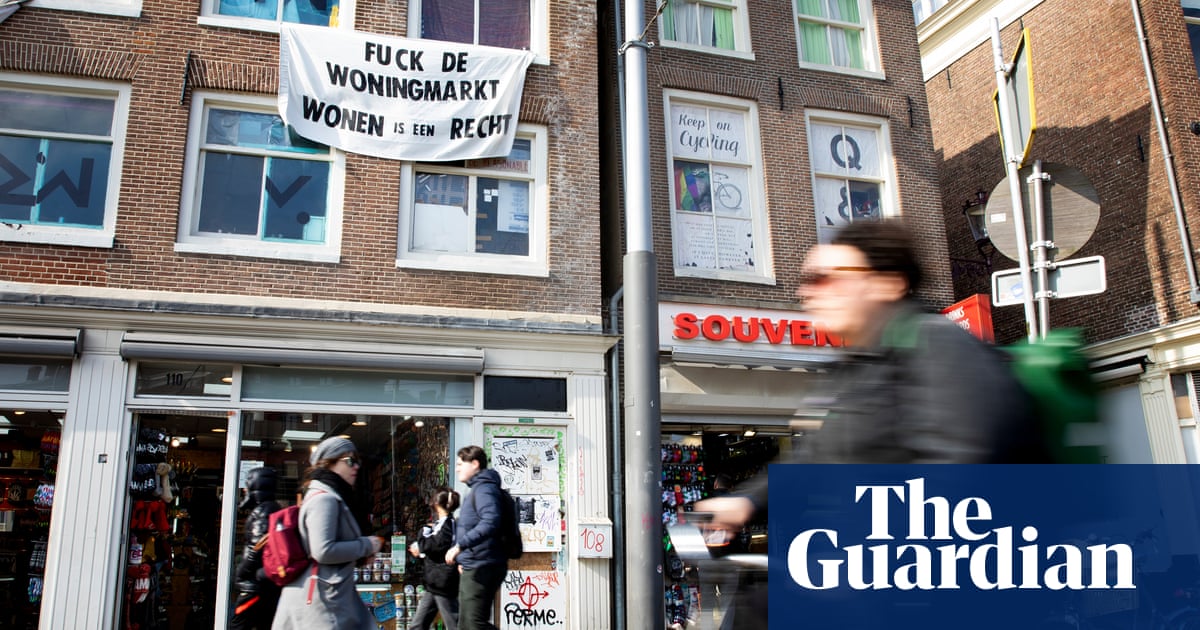Amsterdammers find themselves at the nadir of a Europe-wide housing shortage. But some bold initiatives offer hope
…
In a pan-European housing crisis, the Netherlands’ is next level. According to independent analysis, the average Dutch home now costs €452,000 – more than 10 times the modal, or most common, Dutch salary of €44,000.
That means you need a salary of more than twice that to buy one. Nationwide, house prices have doubled in the past decade; in more sought-after neighbourhoods they have surged 130%. A new-build home costs 16 times an average salary.
The rental market is equally dysfunctional. Rents in the private sector – about 15% of the country’s total housing stock – have soared. A single room in a shared house in Amsterdam is €950 a month; a one-bed flat €1,500 or more; a three-bedder €3,500.



This is the best summary I could come up with:
Competition among those who can afford such sums – such as multinational expats – is so fierce that many pay a monthly fee to an online service that trawls property websites, sending text alerts seconds after suitable ads appear.
In a peaceful neighbourhood 30 minutes’ walk from Amsterdam central station, Lukas and Misty are among 96 tenants – half of them young refugees with residence permits – of a so-called Startblok, one of five around the capital.
But the Startblokken – like the multiple temporary accommodation programmes for “economically homeless” people in Amsterdam run by Kuschel’s De Regenboog – are drops in the ocean of the vastness of the Netherlands’ housing crisis.
In the rental market, the crippling lack of homes and large numbers of tenants who – for want of an affordable alternative – remain in social housing despite earning more than the maximum allowed have contributed to sky-high private rents.
Politicians including Geert Wilders, whose far-right Freedom party (PVV) finished a shock first in November’s general election, have blamed asylum seekers, foreign students and environmental laws.
Among multiple other factors, the rapporteur blamed a lack of regulation of social housing providers, an absence of rent caps in the private sector and “insufficient attention to the role of speculation and large investors in the real estate market”.
The original article contains 1,683 words, the summary contains 218 words. Saved 87%. I’m a bot and I’m open source!
And to add another viewpoint, this development has spiked the attitude and emotions concerning immigrations. For literally, atm there simply is no affordable housing to be found for the current nationals . Not talking about the political or the morality, simply about the absence of (current and new) infrastructure for placements in the foreseeable future.
Not to mention, that the Netherlands is one of the highest populated areas per km² in the world, especially considering that only like 30% of it’s total landsurface is used for housing and all the rest is industry, trade, but especially agriculture takes a huge bulk.